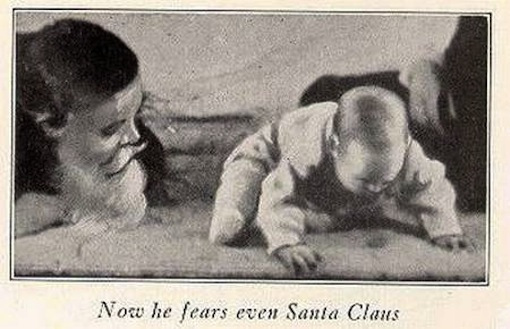Shaped by Conditioning
The Conditioning of Human Thought and Behaviour
In 1920, John B. Watson and Rosalie Rayner carried out the now infamous Little Albert experiment, which showed that even an infant’s emotions could be conditioned. Albert, a baby who initially showed no fear of a white rat, was trained to associate the animal with a frightening noise. After repeated pairings, Albert cried simply at the sight of the rat. His fear even spread to other furry objects, such as rabbits and dogs. Though ethically unacceptable today, the experiment revealed a profound truth: human behaviour and thought are shaped from the very beginning through associations and conditioning.
What we come to see as “cute” or “acceptable” is rarely innate—it is learned. A rabbit is considered harmless and adorable, while a pig might not evoke the same reaction, even though both are intelligent mammals. Similarly, society teaches us that some animals make pets, while others belong on a plate. Cows become “milk machines” rather than complex, sentient beings. These categories are not natural—they are the result of cultural conditioning reinforced over time.
Conditioning does not end in childhood. The marketing and advertising industry continues the process, shaping our desires, fears, and values. From the toys children play with, to the foods they crave, to the lifestyles they aspire to, much of what people regard as “normal” or “necessary” is carefully engineered. We are conditioned not just to consume products, but to adopt entire worldviews that align with economic and cultural systems.
This raises an uncomfortable question: if our fears, desires, and choices are largely conditioned, how much room is left for free will? What we call “choice” may, in fact, be the repetition of patterns implanted in us from infancy.
And here lies the danger: when our inner compass is shaped by marketing rather than by meaning, we risk losing the very values that make us human. Acceptance, compassion, and empathy are slowly displaced by superficial desires for status, appearance, and consumption. If we surrender to this conditioning without reflection, free will may not mean much at all.
At Youmanity, we believe it is time to reclaim what makes us truly human: to look beyond the noise, to resist being reduced to consumers, and to re-learn empathy as the greatest act of freedom.
Cover photo:
By John B Watson - Akron psychology archives, Public Domain, https://commons.wikimedia.org/w/index.php?curid=26449930



